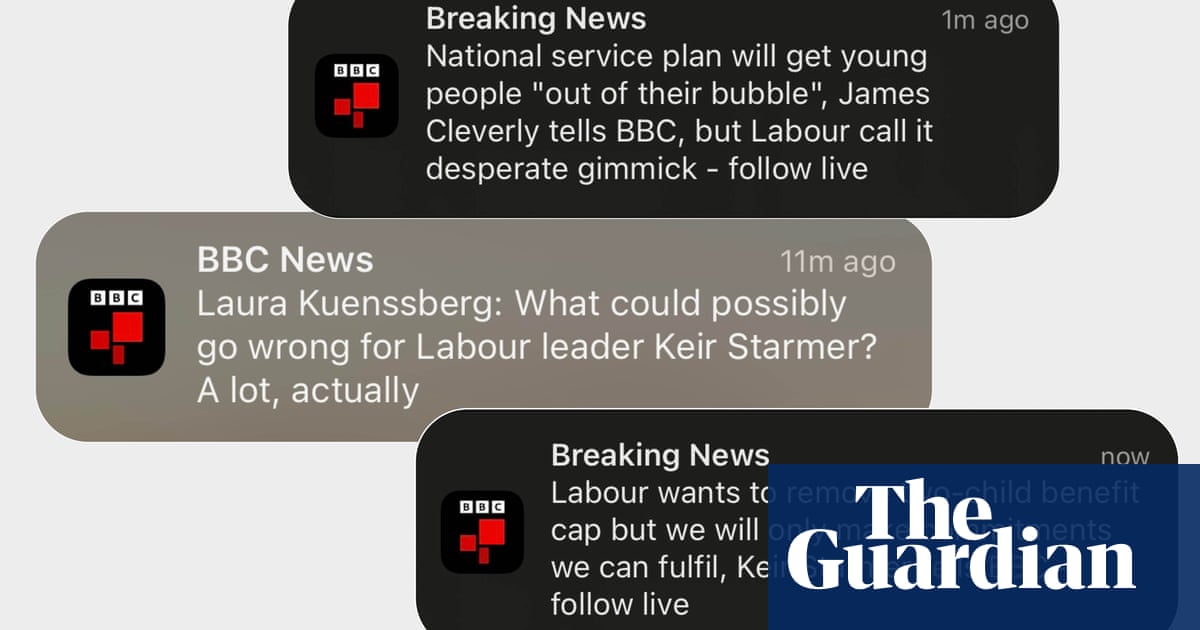Who Watches the Push Men?

Times have changed:
The most powerful person in British media during this election, in terms of having the most direct access to voters, is no longer the editor of BBC’s News at Six or the person who chooses the headlines on Radio 2. Nor are they a newspaper editor, a TikTok influencer, or a podcaster. Instead, they’re the anonymous on-shift editor of the BBC News app, making snap judgments on whether to make the phones of millions of Britons buzz with a breaking news push alert.
The BBC does not publish user numbers, but external research suggests about 12.6 million Britons have its news app installed. BBC newsroom sources say the actual number is higher and the assumption is that about 60% of users have notifications enabled. This means that on a conservative estimate, a typical push alert is reaching the phones of 7 million Britons – more than any other broadcast news bulletin in the UK.
It feels like push notifications are perhaps now one of the most influential yet least talked about elements of technology. We all complain that there are too many of them, of course. But when breaking news hits, such as yesterday with the unfortunate passing of basketball legend Bill Walton, you're reminded of their power. I must have gotten a dozen notifications from various different apps about the news within an hour timeframe.
In fact, while I didn't really think much about it until reading the above piece, I think I do hear about most news via this mechanism. While most people tend to talk about news in the age of social media as all of us just constantly refreshing feeds, aside from the very real desk jockeys who have a million windows and browser tabs open, most of us instead get items sent to our phones via push.
And with devices like the Apple Watch, it's even more pronounced. I'll often be chatting with people in some setting and something comes in and I mention the news, breaking it to these people. It's sadly not about reading the story (and perhaps nuance) on the topic (which is still basically impossible to do on an Apple Watch), but instead just the headline. It is what it is.
And it is what it is at scale – compare that 7 million estimate to the other "mass" media channels:
The audience for the BBC’s News at Six, the most-watched television news show in the country, is down to about 3.5 million viewers – and its audience is ageing; the average BBC One television viewer is now in their 60s. Print newspaper front pages remain heavily analysed, but their reach has collapsed. Twenty years ago, the Sun still sold 3.5m copies a day. Now the biggest selling print newspaper is the Daily Mail, on 700,000 copies.
And per the broader point of The Guardian piece, heading into this election season (in the UK, US, and many other countries around the world), it feels like millions are primed to get information primarily this way which is both powerful and potentially dangerous. Who is pushing what news item? Who decides? Just a random person?1 Something worse?

1 And none of this speaks to the ridiculous "Breaking News" creep that has been happening at basically every outlet over time. Where the smallest, dumbest bit of content can somehow be deemed "Breaking News" worthy.


